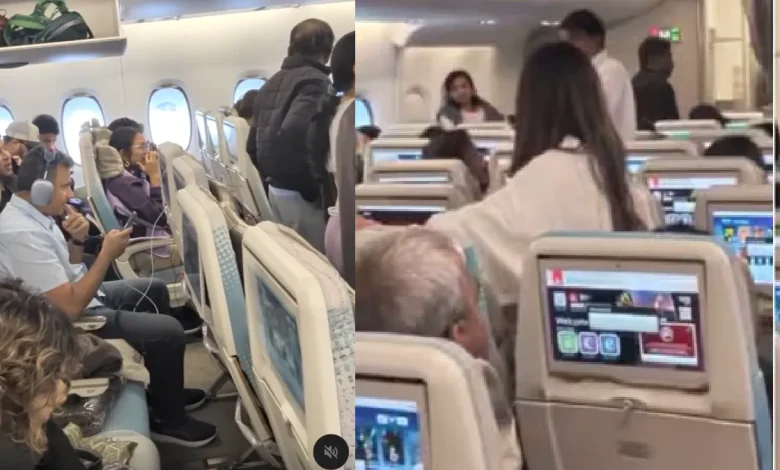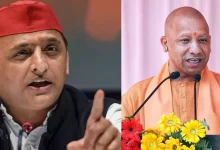‘Like an Indian train’: Panic on US flights after Trump’s H‑1B fee shock triggers scramble among Indian passengers | VIDEO

Reports from social media indicated widespread anxiety among H‑1B holders and applicants across the United States after President Donald Trump announced a steep $100,000 annual fee on H‑1B visa petitions, prompting several Indian passengers to disembark from flights mid‑boarding. The proclamation framed as an immediate change for new applicants sparked confusion and fear that re‑entry to the US could be jeopardized if travelers left the country.
At San Francisco International Airport, an Emirates flight bound for India reportedly saw dozens of Indian passengers request to get off the aircraft before departure, leading to delays as ground staff processed the chaotic exit. A video shared on Threads, which Media noted had not been independently verified, purportedly showed a packed cabin moments before passengers began pleading to deplane.
Posts described the scene as unfolding just after news of the H‑1B policy broke, with travelers fearing they might be unable to return if the rules took effect while they were abroad. The flight was reportedly delayed for over three hours as staff managed the situation and updated the manifest.
Corporate advisories followed swiftly, with large employers including Microsoft, Amazon, and JPMorgan reportedly urging employees on H‑1B and H‑4 visas to avoid international travel and, where applicable, return to the US before the stated deadline. While the order’s full implementation details were still awaited, the proposed $100,000 annual fee for new petitions far above current charges triggered immediate concern among Indian professionals who are among the largest users of the program.
Currently, H‑1B visas carry fees typically in the low thousands of dollars depending on employer size and filing specifics, are generally valid for three years, and can be extended for another three. The abrupt announcement and high fee level led to fears of disruptions for ongoing projects, personal travel plans, and the broader mobility of skilled workers tied to the US tech and services ecosystem.




